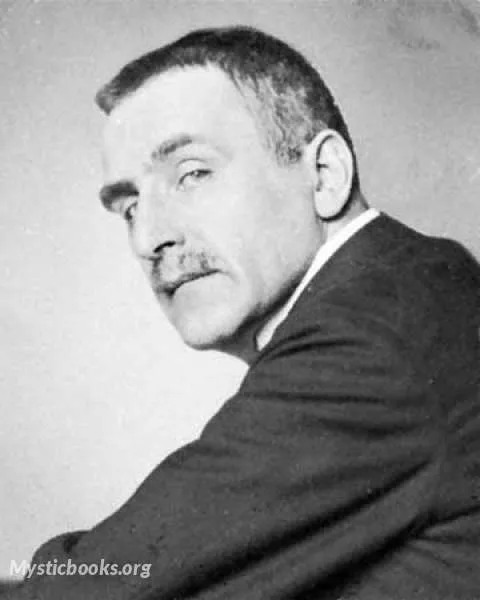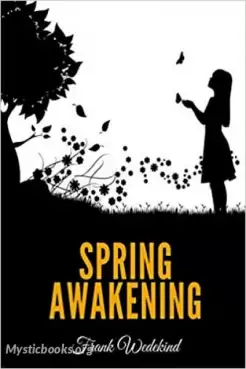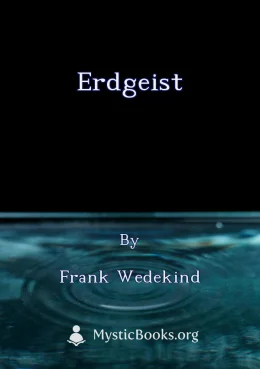
Timeline
Title
Country/Nationality
Frank Wedekind
Benjamin Franklin Wedekind was a German playwright. His work, which often criticizes bourgeois attitudes (particularly towards sex), is considered to anticipate expressionism and was influential in the development of epic theatre.
In the English-speaking world, before 2006 Wedekind was best known for the "Lulu" cycle, a two-play series—Erdgeist (Earth Spirit, 1895) and Die Büchse der Pandora (Pandora's Box, 1904)—centered on a young dancer/adventuress of mysterious origin. In 2006 his earlier play Frühlings Erwachen (Spring Awakening, 1891) became well known because of a Broadway musical adaptation.
Benjamin Franklin Wedekind was born on July 24, 1864, in Hanover, German Confederation, Große Aegdienstraße 13 (today: Friedrichswall 10). His mother was Swiss and became pregnant with him in San Francisco. His father, a German, had a Swiss castle in which Wedekind grew up, after the family had left Hanover in 1872. Until World War I, when he was forced to obtain a German passport, he was an American citizen and traveled throughout Europe. He lived most of his adult life in Munich, though he had a brief period working in advertising, for the Maggi soup firm, in Switzerland in 1886.
Having worked in business and the circus, Wedekind went on to become an actor and singer. In this capacity, he received wide acclaim as the principal star of the satirical cabaret Die elf Scharfrichter (The Eleven Executioners), launched in 1901. Wedekind became an important influence on the tradition of German satirical writing for the theatre, paving the way for the cabaret-song satirists Kurt Tucholsky, Walter Mehring, Joachim Ringelnatz and Erich Kästner among others, who after Wedekind's death would invigorate the culture of the Weimar Republic; "all bitter social critics who used direct, stinging satire as the best means of attack and wrote a large part of their always intelligible light verse to be declaimed or sung". At the age of 34, after serving a nine-month prison sentence for lèse-majesté (thanks to the publication in Simplicissimus of some of his satirical poems), Wedekind became a dramaturg (a play-reader and adapter) at the Munich Schauspielhaus.
His sex life was promiscuous and he frequented prostitutes, contracting syphilis. He also enjoyed the pleasure of platonic female company and kept his tendencies toward homosexuality and sadism in check. He had an affair with Frida Uhl, who bore him a child. In 1906, he married the Austrian actress Tilly Newes, 22 years his junior and became strictly monogamous. His relationship with his wife was turbulent, with Wedekind prone to jealousy and he felt pressure to maintain strenuous creative and sexual activity in order to please her. They had two daughters, Pamela and Kadidja, but his jealousy led his wife to attempt both separation and suicide.
Near the end of his life, Wedekind underwent an appendectomy and immediately began acting again, leading to a hernia. His doctor refused to operate immediately but Wedekind insisted and complications from the surgery led to his death at the age of 53 on March 9, 1918.
Tilly Wedekind went on to appear in such films as Travelling People and was romantically linked to the author Gottfried Benn. In 1969, at age 83, she published an autobiography in German, Lulu: Die Rolle meines Lebens (Lulu: The Role of My Life).
Books by Frank Wedekind

The Awakening of Spring
Spring Awakening is the German dramatist Frank Wedekind's first major play and a foundational work in the modern history of theatre. It was written sometime between autumn 1890 and spring 1891, but did not receive its first performance until 20 Novem...

Pandora's Box
Pandora's Box is a 1904 play by the German dramatist Frank Wedekind. It forms the second part of his pairing of 'Lulu' plays, the first being Earth Spirit (1895), both of which depict a society "driven by the demands of lust and greed".

Büchse der Pandora
Die Büchse der Pandora, written by Frank Wedekind, is a captivating and morally complex tragedy that delves into the life of Lulu, a woman whose alluring beauty and enigmatic nature draw men to her, often with tragic consequences. The play explores t...

Erdgeist
Erdgeist is a powerful and controversial play that explores the themes of female emancipation, social criticism, and the destructive nature of passion. The play's protagonist, Lulu, is a beautiful and enigmatic woman who becomes the object of desire...

Earth Spirit
Earth Spirit by Frank Wedekind delves into the complexities of human nature, exploring themes of sexuality, power, and societal hypocrisy through the enigmatic character of Lulu. Wedekind's provocative play presents a raw and unflinching look at the...